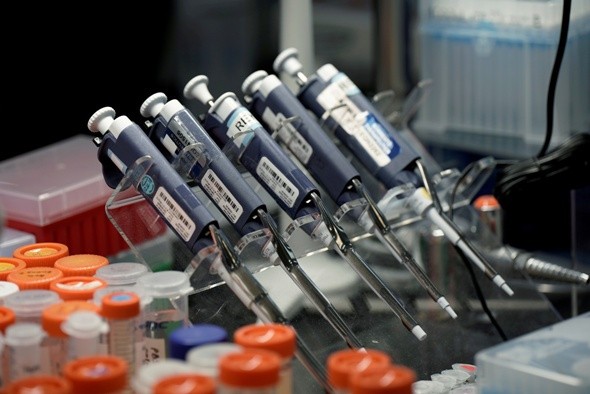Manufactured Antibodies May Be Next Big COVID-19 Treatment

A coronavirus disease 2019 (COVID-19) vaccine is something the world awaits the most, but right now, the next big treatment to fight the pandemic could come from antibodies designed to attack this new virus.
Using antibodies in treatment is a class of biotech therapy used against cancer and other disorders. Many are hoping it will work the same way for COVID-19.
Developing monoclonal antibodies to fight the virus has been endorsed by leading scientists. It includes top U.S. infectious disease expert Dr. Anthony Fauci, who called antibodies "almost a sure bet" in the fight against COVID-19, reported Reuters.
Antibodies are proteins that a person's body makes to target invaders, like a virus. They are produced when the virus gets past the body's first defenses.
To stop the spread of a virus in a person's body, they will recognize it and lock onto it. Monoclonal antibodies are grown in bioreactor vats, and they copy the proteins that the body naturally makes.
Scientists are still looking into the exact role of antibodies for a person to get better from COVID-19.
Drug Makers Show Confidence in Antibodies
Drug makers are confident that the right antibodies or a mix of them can change the nature of the disease that has claimed more than 600,000 lives all over the world.
For one, Regeneron Pharmaceuticals is testing a two-antibody combination. Using two of the proteins is what they believed to be a better treatment from COVID-19 than just one. Data on the test trials is expected to come by late summer or early fall.
In an article from Malaysian news site The Star Online, Regeneron said their drug both prevented and treated the disease in rhesus macaques and hamsters. It added that it hoped that the drug may work for people too.
While their animal study has not yet been peer-reviewed, it did show that the mix of two antibodies was able to "almost completely block the establishment of virus infection."
In a second study where they had animals with higher levels of the virus, their drug was also able to have lower infection rates.
In June, they were given a $450 million supply contract by the U.S. government. With that, they plan to produce the drugs as soon as possible at its U.S. plant once approved.
The CNBC also reported that Eli Lilly has started to have the last stages and trials for its drug. They are looking forward to testing it in order to prevent the spread of COVID-19 in nursing homes. Eli Lilly is using mobile research labs to make the study possible.
Monoclonal antibodies are being used in both the Regeneron and Eli Lilly drug trials.
'Instant Immunity' from COVID-19
Infused antibodies are not like vaccines that boost the body's immune system to fight a disease. The effects that people get from antibodies will go away in time.
That said, these kinds of treatment can still be a brief safeguard for people at risk like medical workers and the elderly. It can be a form of treatment for until vaccines have been made and are widely available.
Mark Brunswick of Sorrento Therapeutics said this kind of treatment is "basically instant immunity" against a virus. The company is also looking forward to human trials on its single treatment by next month.
With the belief of many in antibodies, Florian Krammer, microbiology professor at Icahn School of Medicine, stressed that antibodies have a chance of working well if given early. But it may not still be the case if given later on.
Want to read more? Check these out!
New Study From CDC Confirms Kids Could Be the Spreader of the Virus
New CDC Forecast Projects 20,000 Deaths Due to COVID-19 in 21 Days
WHO Warns the Global Pandemic Will Not End Soon
Subscribe to Latin Post!
Sign up for our free newsletter for the Latest coverage!
© 2026 Latin Post. All rights reserved. Do not reproduce without permission.















